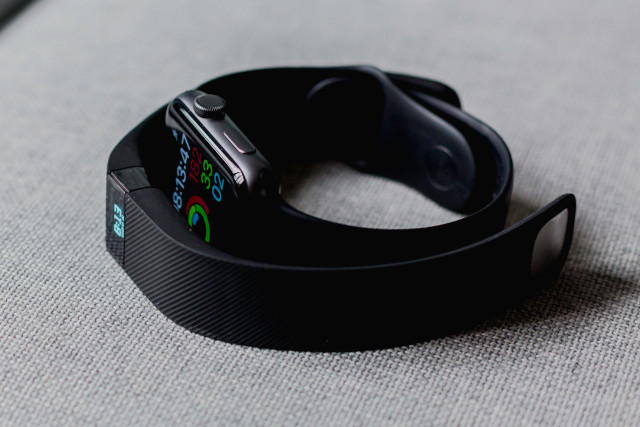
Photo by Andrew Pons on Unsplash
The fight for the Pentagon’s JEDI contract might not be over as Amazon announced they would contest due to the final decision being biased against them. I know it is $10B, but everybody needs to move on.
Meanwhile JEDI winner Microsoft continues to push new technology in AI and Blockchain. Microsoft is testing medical AI technology to diagnose cervical cancer in India. Sometimes I feel that this medical review tech is more hype than reality, and my suspicions are higher when companies don’t test technology in the US first… but there is value if it truly works.
Finally, the State of New Jersey is hitting Uber with a $650M employee tax bill… good.
Acquisitions/Investments
- Mirantis acquires Docker Enterprise
With this deal, Mirantis is acquiring Docker Enterprise Technology Platform and all associated IP: Docker Enterprise Engine, Docker Trusted Registry, Docker Unified Control Plane and Docker CLI. It will also inherit all Docker Enterprise customers and contracts, as well as its strategic technology alliances and partner programs. Docker and Mirantis say they will both continue to work on the Docker platform’s open-source pieces.
The companies did not disclose the price of the acquisition, but it’s surely nowhere near Docker’s valuation during any of its last funding rounds. Indeed, it’s no secret that Docker’s fortunes changed quite a bit over the years, from leading the container revolution to becoming somewhat of an afterthought after Google open-sourced Kubernetes and the rest of the industry coalesced around it.
https://techcrunch.com/2019/11/13/mirantis-acquires-docker-enterprise/
- Yahoo-Line Merger Plan Raises Hopes for Japanese ‘Super App’
SoftBank wants to gain greater control of Line in years to come, the person said.
Another challenge is the two companies’ focus on the Japanese market, where the population is shrinking and growth prospects are limited. The market for the services they offer—such as texting, internet shopping and online financial services—is already dominated in most other countries by larger rivals such as Amazon.com Inc. and Facebook Inc.
Still, analysts said the new entity, if designed well, could become Japan’s first “super app,” a gateway on smartphones for a broad range of everyday needs. That model has driven growth for China’s Tencent Holdings Ltd. and Alibaba Group Holding Ltd. Tencent’s WeChat app for chatting with friends spawned a payment service, WeChat Pay, that along with Alibaba’s Alipay is now almost universally used for retail purchases in China.
- OpenText buys data security firm Carbonite for $1.42B
The deal marks a 78% premium on Carbonite’s share price on September 5, when it was first rumored the company was preparing to buy the backup and data recovery company. Carbonite said the board “strongly believes” the deal will return “substantial” cash value to shareholders, said Steve Munford, chairman of Carbonite’s board.
In February, Carbonite bought endpoint security company Webroot for $618.5 million in an all-cash deal, as the company pushed to protect against emerging threats like ransomware. Only a year earlier, Carbonite bought Mozy for $145 million, a cloud backup service.
Carbonite said at the time of its acquisition by OpenText the backup company had losses of $14 million on revenues of $125.6 million, an increase by 62% year-over-year.
Artificial Intelligence
- Microsoft AI helps diagnose cervical cancer faster
In some cases, AI-assisted cancer detection might be more than a convenience — it could be the key to getting a diagnosis in the first place. Microsoft and SRL Diagnostics have developed an AI tool that helps detect cervical cancer, freeing doctors in India and other countries where the sheer volume of patients could prove overwhelming. The team trained an AI to spot signs of the cancer by feeding it “thousands” of annotated cervical smear images to help it spot abnormalities (including pre-cancerous examples) that warrant a closer look. Doctors would only have to look at those slides that justify real concern.
https://www.engadget.com/2019/11/10/microsoft-ai-diagnoses-cervical-cancer-faster/
- Microsoft’s A.I. and research chief Harry Shum is leaving
Microsoft said on Wednesday that Harry Shum, the executive vice president in charge of its artificial intelligence and research group, is leaving the company in early 2020. Kevin Scott, the company’s chief technology officer and formerly a LinkedIn executive, is taking on Shum’s responsibilities in addition to his own. It’s not clear what Shum will do next.
Shum has been a figurehead in the more integrated approach to research that has taken hold at Microsoft during the tenure of CEO Satya Nadella, who replaced Steve Ballmer in 2014. His group has been one of the most prominent technology research institutions outside academia, alongside the likes of Google parent-company Alphabet and Facebook.
https://www.cnbc.com/2019/11/13/microsoft-ai-and-research-chief-harry-shum-leaves.html
Cloud
- AWS confirms reports it will challenge JEDI contract award to Microsoft
In a statement, an Amazon spokesperson suggested that there was possible bias and issues in the selection process. “AWS is uniquely experienced and qualified to provide the critical technology the U.S. military needs, and remains committed to supporting the DoD’s modernization efforts. We also believe it’s critical for our country that the government and its elected leaders administer procurements objectively and in a manner that is free from political influence.
“Numerous aspects of the JEDI evaluation process contained clear deficiencies, errors, and unmistakable bias — and it’s important that these matters be examined and rectified,” an Amazon spokesperson told TechCrunch.
- Privacy uproar shows Google cloud business has a trust problem
This sounds like the leak of Facebook data to Cambridge Analytica. But it also describes this week’s portrayal by the media of US healthcare provider Ascension’s decision to hand the records of 50 million of its patients to Google.
In reality, this is far from the scandal it was painted. But the huge attention it has received points to both the risks and opportunities as large troves of valuable data are moved, wholesale, to the cloud. How this information is handled, and who reaps the value from it, are questions that will stir much wider concern.
https://www.irishtimes.com/business/technology/privacy-uproar-shows-google-cloud-business-has-a-trust-problem-1.4084291
Google’s ‘Project Nightingale’ Triggers Federal InquiryThe data on patients of St. Louis-based Ascension were until recently scattered across 40 data centers in more than a dozen states. Google and the Catholic nonprofit are moving that data into Google’s cloud-computing system—with potentially big changes on tap for doctors and patients.
At issue for regulators and lawmakers who expressed concern is whether Google and Ascension are adequately protecting patient data in the initiative, which is code-named “Project Nightingale” and is aimed at crunching data to produce better health care, among other goals. Ascension, without notifying patients or doctors, has begun sharing with Google personally identifiable information on millions of patients, such as names and dates of birth; lab tests; doctor diagnoses; medication and hospitalization history; and some billing claims and other clinical records.
- IBM and Oracle are so far behind in the cloud, they might stop trying to compete with
Amazon altogether and go a different route, analyst says
Rather than compete directly with those giants, lagging players like Oracle will focus on its applications and databases, while IBM will focus on hybrid cloud and its $34 billion acquisition of Red Hat, the report says.Dave Bartoletti, vice president and principal analyst at Forrester, tells Business Insider that they won’t get out of the game entirely: “It’s really a shifting of positioning,” he said. “I don’t think IBM and Oracle will get that much bigger. They will just refocus on what they do best.”
https://www.businessinsider.com/ibm-oracle-amazon-forrester-report-2019-11
Security/Privacy
- But Actually, How Scary Is Critical Infrastructure Hacking?
Critical infrastructure hacking was brought to the public’s attention by former Secretary of State and CIA director Leon Panetta in a much-maligned 2012 speech where he warned of a coming “Cyber Pearl Harbor.”
https://www.vice.com/en_us/article/8xwpav/but-actually-how-scary-is-critical-infrastructure-hacking
- Amazon-Owned Ring Shared Data About Tracking Kids On Halloween
In a company blog and series of Instagram stories, posted Monday and Tuesday, the company showed that it collects, stores, and analyzes sensitive data about how, when, and where people use its doorbell cameras. Ring said that nationwide, its doorbell cameras were activated 15.8 million times on Halloween. The company makes several other types of surveillance cameras in addition to its doorbell camera.
As it has on other occasions, like Super Bowl Sunday, Ring turned Halloween into a marketing opportunity. As reported by Mashable, Ring circulated videos of children on Halloween on Twitter. Ring also promoted Halloween-themed skins to decorate doorbell cameras on its company blogs and Instagram. However, in promoting itself as a family-friendly company, Ring showed that it collects user data on a granular level.
Infrastructure/Hardware
- Apple’s Phil Schiller says kids with Chromebooks in classrooms are ‘not going to succeed’
“Kids who are really into learning and want to learn will have better success. It’s not hard to understand why kids aren’t engaged in a classroom without applying technology in a way that inspires them. You need to have these cutting-edge learning tools to help kids really achieve their best results.
Yet Chromebooks don’t do that. Chromebooks have gotten to the classroom because, frankly, they’re cheap testing tools for required testing. If all you want to do is test kids, well, maybe a cheap notebook will do that. But they’re not going to succeed.”
Other
- T-Mobile CEO John Legere isn’t taking the WeWork CEO job, sources say
Legere, who became CEO of T-Mobile in 2012, has no plans to leave the company, said the people, who asked not to be named because the matter is confidential. CNBC and The Wall Street Journal reported earlier this week that Legere was a candidate to be WeWork’s next CEO.
By taking himself out of the running, Legere is avoiding a potential conflict of interest. SoftBank is the controlling shareholder of Sprint, which is in the process of merging with T-Mobile, and is the majority owner of WeWork. Legere was never the front-runner to take the job, according to people familiar with the matter.
https://www.cnbc.com/2019/11/15/john-legere-isnt-leaving-t-mobile-to-take-wework-ceo-job.html
- Uber Hit With $650 Million Employment Tax Bill in New Jersey
Uber Technologies Inc. owes New Jersey about $650 million in unemployment and disability insurance taxes because the rideshare company has been misclassifying drivers as independent contractors, the state’s labor department said.
Uber and subsidiary Rasier LLC were assessed $523 million in past-due taxes over the last four years, the state Department of Labor and Workforce Development said in a pair of letters to the companies. The rideshare businesses also are on the hook for as much as $119 million in interest and penalties on the unpaid amounts, according to other internal department documents.
The New Jersey labor department has been after Uber for unpaid employment taxes for at least four years, according to the documents, which Bloomberg Law obtained through an open public records request.








